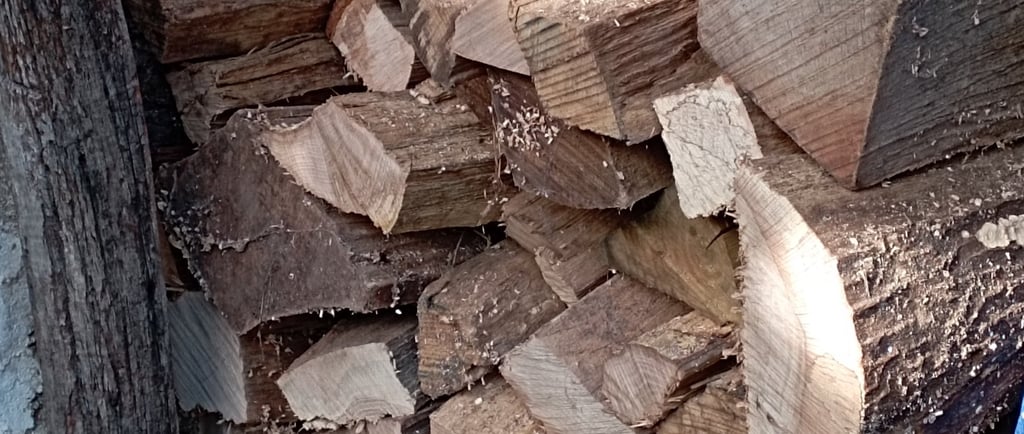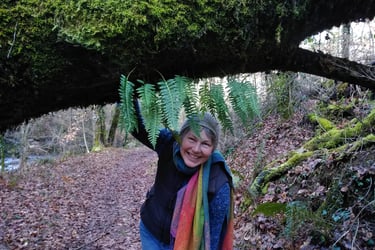Why do we find it so difficult to think ahead?
Many of us find it difficult to believe that our action or inaction will truly have an effect on the future, but experience is a good teacher.


We are well into spring now and yet we are continuing to have cold evenings and still need a fire from time to time. At this time of year we are coming to the end of our supply of wood and so we have to eek it out a bit. However, we are lucky to have have enough woodland to provide us with all the wood we need to heat our small home during the winter. We have two wood stoves, one in the kitchen and the other in the living room, but we rarely need to light both as the one at the bottom of the house in the kitchen is usually enough to keep us cosy.
The whole process of cutting trees, sawing them into manageable pieces , splitting them into logs and finally stacking them into a woodpile to sit for at least a year while they dry out is something we have had to learn since we came here. The first winter we had no wood stored and initially no stove either! I remember Tom dragging a branch covered in snow into the downstairs of our house and chopping it up inside as we tried to burn it on the just installed stove! We had washing hung up for three weeks trying to dry it by a stove that steamed and hissed as it 'burned' wet wood! We progressed to Tom swapping his labour for wood from a neighbour and this was a huge improvement as at least the wood was dry and kept us warm!
As the years progressed we got into the swing of it and we now know to plan ahead at least a year in advance and to use the resources we have growing on our own land. It's physically hard work, but we can choose the day, wait for a bit of sunshine and then steadily cut, chop, stack - all the time knowing it will keep us warm in the winter. If you have experienced living in a cold house without a proper fire then the incentive to prepare a wood pile is definitely there!
Our human inability to think ahead and to imagine the future consequences of us either doing, or not doing, something is a problem I think. Some people are better than others at planning ahead and assessing the consequences. However, I believe that many of us - myself included - have a basic human flaw that makes it difficult to believe the future will actually arrive, or that it will impact on us if we fail to change our behaviour in the present. Experience plays it's part in helping us to learn that our actions and in-actions in the present shape our future, as in failing an examination if we don't revise or being cold in winter if we don't gather wood!


